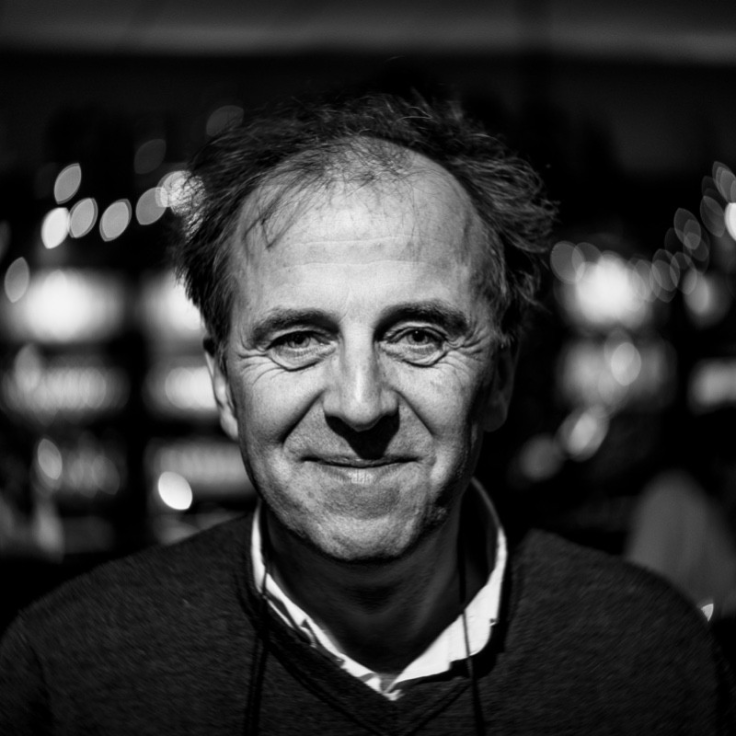Internationally Acclaimed Professor, Koen Bertels, On The Dire Need To Innovate Quantum Computing
Breakthroughs in artificial intelligence and smarter, sleeker-looking tech releases have convinced society that they are consistently pioneering innovation in every technological discipline. However, the current methods we use to build computers took more than 40 years to become scalable. Now, the world is faced with a predicament as the downsizing of CMOS transistors is effectively ending. Moore's Law says they can't get smaller, which means we desperately need a reliable solution to continue growing our computational capabilities.

Quantum computing has been considered a possible solution since transistors below one nanometer are considered part of the quantum universe. However, engineering difficulties, lack of talent, and a fragmented industry has kept quantum computing from surpassing classical hardware abilities.
For the industry to transcend the limits of Moore's Law, international funding and support of the industry is needed. When this happens, companies and universities can increase the quality and applications of quantum computing. QBee, a quantum computing accelerator company founded by Koen Bertels, is among those working to make this innovation happen. They have introduced a new framework that holds the key to unlimited computing potential and are actively working on chemistry, genetics, and space applications.
Without proper funding and research, the quality of the quantum bit will remain low. Decoherence and quantum gate errors will keep this futuristic technology from having any realistic applications. Issues like climate change, global poverty, and industrial product development will also lack the computing power they need to solve problems that are plaguing millions. This is why it's crucial for companies, universities, and even governments to support endeavors to advance quantum computing.
Koen Bertels has been advocating for investments and research into quantum computing since he entered the field a decade ago. As a computer engineer, Koen has always had a passion for science that has led to his career and the many achievements he has gained throughout his life. For over 20 years, Koen worked as a professor at Delft University of Technology in the Netherlands. While he was there, he was the pioneer of the Computer Engineering department and played a key role in developing a quantum computer chip for the most established computer manufacturing company in the world, securing a $50M partnership with them. At the university, Koen researched quantum hardware design and microarchitecture for super- and semiconducting qubits. Currently, he works as a quantum engineering professor at Belgium's University of Ghent. Koen has developed multiple assets for QuTech, such as a quantum programming language, OpenQL. His team also developed a simulator for testing hardware and mapping qubit behaviors.
After focusing on quantum hardware for about eight years, Koen switched his attention to software development. He worked with many talented physicists, fellow computer engineers, and other academics before deciding to found his company QBee. The startup was formed to develop quantum solutions for industrial companies in the specialties of chemistry, genetics, and space. QBee is Koen's third company, following a successful portfolio management company and a genome sequencing organization purchased by a world leader in DNA research.
Koen's expertise in quantum computing has been QBee's foundation to becoming the most innovative company in the industry. So far, the company has won an award from an international competition consisting of 35 teams and has received a multi-year contract for building a quantum space project.
At the international competition, QBee was tasked with finding a solution for climate change through quantum algorithms. They secured the win by focusing on logic concepts that are influenced by their PISQ approach. The new framework challenges the traditional method of Noisy Intermediate Scale Quantum (NISQ). The Perfect Intermediate Scale Quantum (PISQ) was defined by Koen's team. However, the term Perfect Qubit was defined by physicists and mathematicians after the famous talk by theoretical physicist Richard Feynman in 1986.
The technique allows for no errors with qubit calculation or decoherence. By doing this, it becomes easier to discover quantum gates and help the technology mature. Koen's work with PISQ and his actions to uncover the mysteries of quantum computing has sparked a revolution in how scientists and corporations view these inventions. Koen urges that research must be focused on the quantum logic for industrial applications for instance from the pharmaceutical and healthcare industries. NISQ-based research will stay relevant such that the IT industry will decide on what qubit technology can be brought to the market. While quantum technology hasn't become functional yet, breakthroughs are on the horizon. Koen Bertels and others are working on exciting developments in quantum logic for genome sequencing and space applications, but call for greater collaboration with other startups.
If researchers and organizations stay involved with developing quantum computing, they will witness a technological evolution. Universities must also take part in this. Increasing courses and faculty for quantum computing is essential for providing the field with enough talent to survive. Quantum computing will be an integral component to reshaping our idea of tech innovation and the human experience.
"For the sake of humanity and our planet, quantum computing is the kind of technology we need to be able to develop. We need it to solve global issues like climate change and poverty. If we fail to create functional hardware and software applications of quantum computing, our society will inevitably suffer unimaginable consequences. We will have no ability to surpass our previous innovations as our technological abilities will have been stunted massively," says Koen Bertels.





















